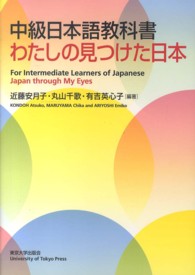Description
Fernando Pessoa (1888-1935) is the quintessential philosophical outsider. Affiliated to no institution, and associated with no traditional school, in his prose fiction and poetry, Pessoa invented a new philosophy of the human subject, arguing that imagination is key to human flourishing and human self-enrichment. Each of us, he claimed, can use our powers of imagination to "pluralise ourselves;" that is to say, to live, simultaneously and in sequence, as a plurality of distinct subjects. Calling these artefact minds "heteronyms", Pessoan synthetic selves are new ways poetically to experience the world.In this study of the philosophical thought of Pessoa, philosopher Jonardon Ganeri highlights connections between Pessoa with earlier philosophical poets, from Keats to Shakespeare and from Coleridge to Whitman. Ganeri emphasises Pessoa's originality in his theory of the human subject as a radical departure from the history of Christian or Islamic thought, highlighting affinities with ideas from works of philosophical fiction in classical India through an examination of Pessoa's own engagement with Indian poetry and philosophy. Ganeri convincingly argues for the need to consider Pessoa's writings as a philosopher, both on their own terms and as in deep conversation with the tradition of Indian thought.
Table of Contents
AcknowledgementsIntroductionPart I: Poets And PluralsChapter 1: Be Plural! A Poet's CreedChapter 2: Self-EstrangementPart II: Varieties of Heteronymous ExperienceChapter 3: Artefact MindsChapter 4: A Life Lived in Serial, And In ParallelPart III: Make-Believe and The MoksopayaChapter 5: Reality++Chapter 6: Names Used Twice OverPart IV: Pessoa's Imaginary IndiaChapter 7: Pessoa in IndiaChapter 8: 'One Intellectual Breeze'GlossaryBibliographyIndex
-

- 洋書電子書籍
-
ウェアラブル・コンピューティング
-

- 電子書籍
- ソードアート・オンライン8 アーリー・…






